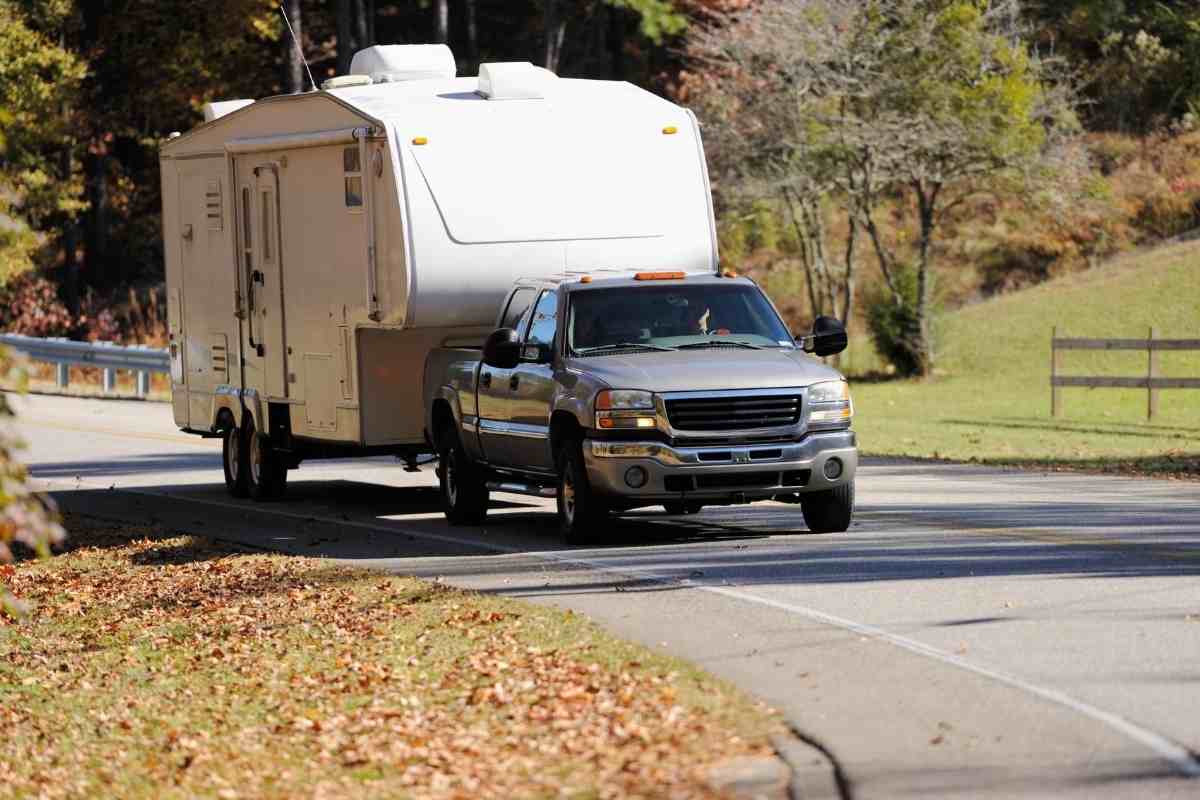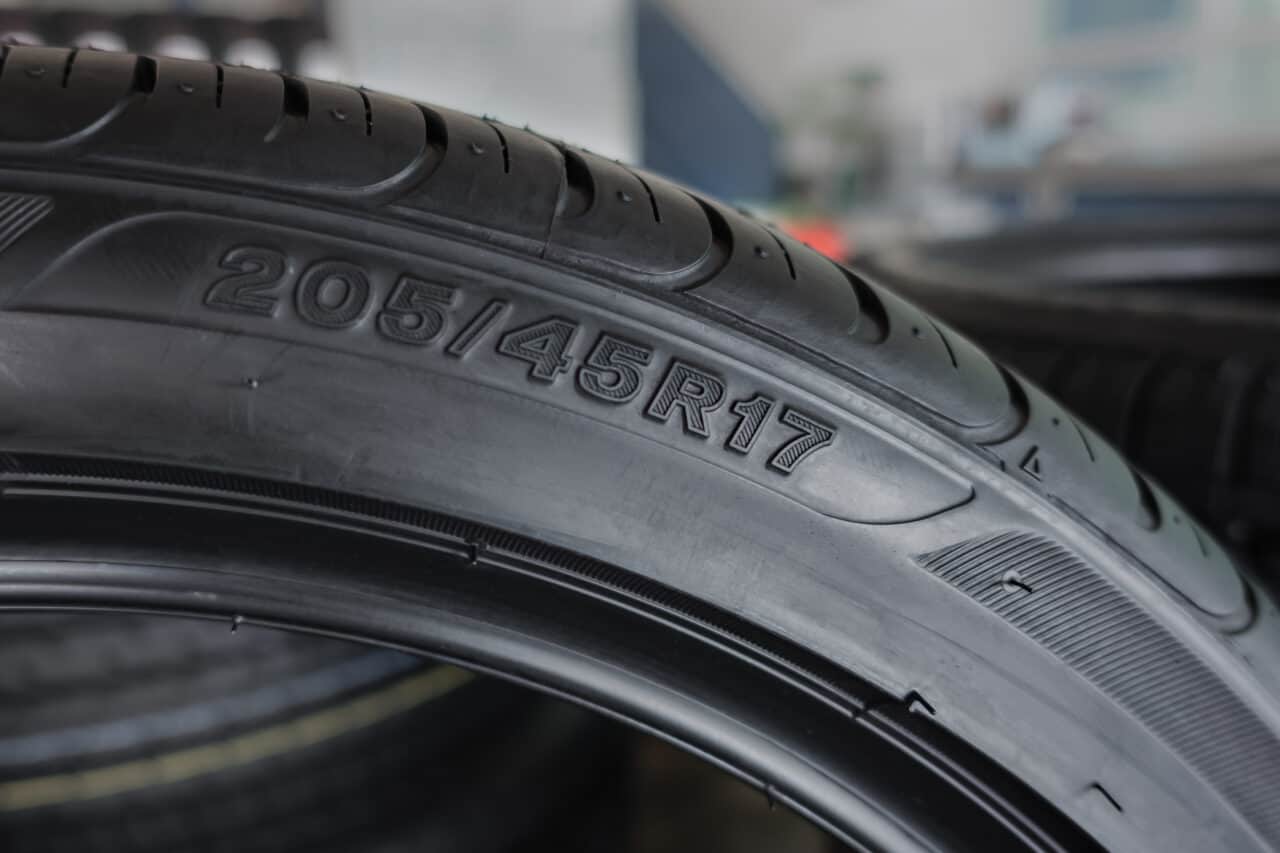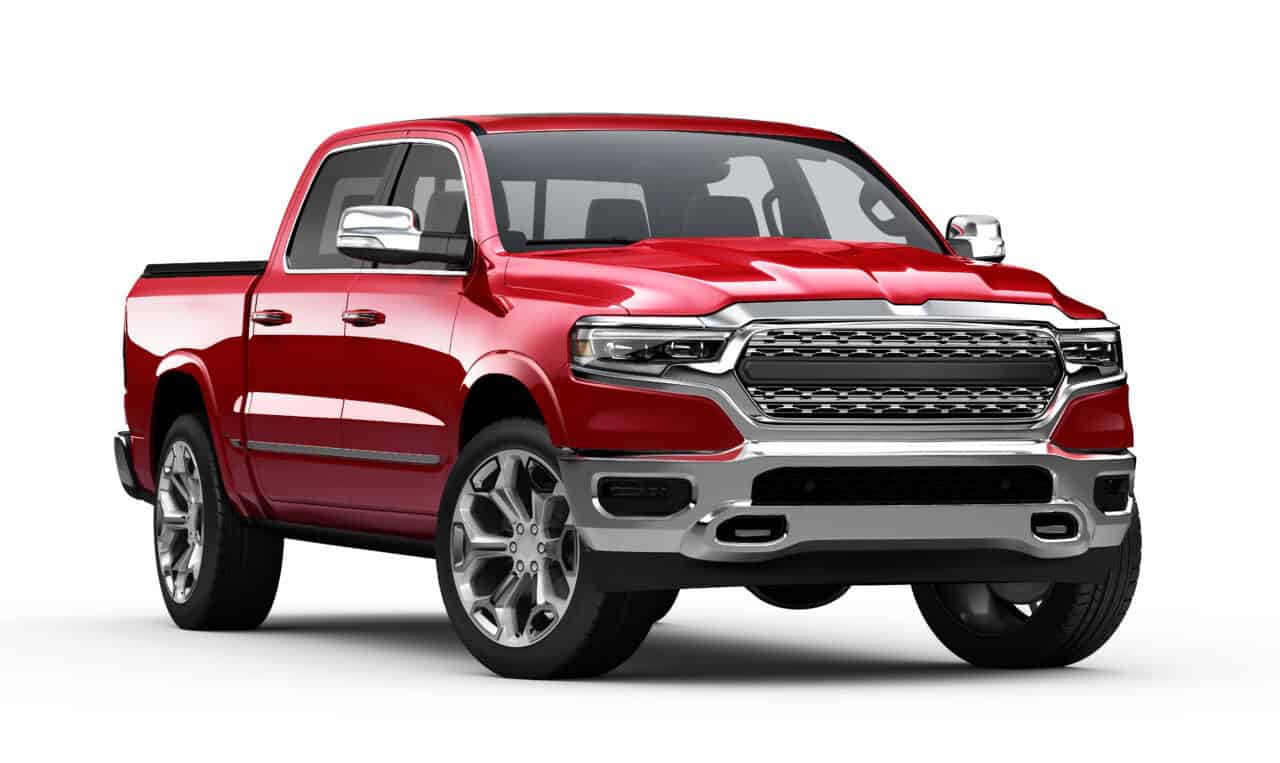Do Bigger Tires Affect Towing Capacity?
Trucks are great because they have many uses. One of the purposes of a truck is towing things such as boats and trailers. You would think that having larger tires will help with the towing capacity, but it is more complicated than you would think.
Bigger tires do affect a vehicle’s towing capacity. Larger tires transmit less torque, which gives the truck less power, allowing less weight to be towed. The towing capacity is reduced by the same percentage of the increased tire diameter.
At the end of the day, you might actually want smaller tires if you want to tow a heavier load. We’ll discuss the pros and cons of larger tires below, as well as the effect that size has on towing capacity.
Bigger Tires
Having the proper tires for your truck is crucial for many reasons.
Tires help your truck move and are in contact with the road at various speeds. If they are not properly installed or strong enough for your truck, it can be very dangerous to drive on them. You could be putting yourself at risk for blowouts, suspension damage, or vehicle rolling.
Installing a set of larger tires can require maintenance to your truck, such as adjusting the speedometer and other things in the truck. If not properly taken care of, it could be dangerous to drive with this new setup.
Some people like to put bigger tires on their truck for appearances, but it all depends on what you use your truck for. Having larger tires can be great for off-roading and for aesthetics, but they may not be the best option if you are trying to tow heavy loads.
How to Read Tire Size
First, you need to find your tire size. This information will usually be available in your owner’s manual. You can also find a tire guide on the driver’s side door jamb, inside the glove box door, or on your gas tank hatch. This will tell you the typical tire size for your truck.
Of course if you know the tires are a different size than the typical size, you will have to look on the tire sidewall.
Tire sizes can be tricky to understand. They come in a code, with each letter and number combination meaning something.
Example: 275/55R20
The first number (275 in this example) will be the width of your tire. This number is measured in millimeters.
The next number (55 in this example) is the aspect ratio. The aspect ratio tells you how tall the wide of the tire’s wall is and it’s measured in percentages. So in this example, the tire’s profile height is 55% of its width.
Next will be a letter. In this example, the letter is R. This is known as the construction or your tire’s stability. There are two types you will see in a tire. R, or Radial, is the most common for all tires in the United States. Radial construction basically means that the tire’s ply cords are in a radial direction. The other type of tire is D, meaning Diagonal or Bias Ply.
The last number will be the RIM diameter, which is measured in inches. The RIM diameter is the measurement of the rim that the tire can be mounted on. In the example, the tire would fit a rim with a 20-inch diameter.
Sometimes, your tire will show another number and a letter. The next number would be the Load Index, which tells how much weight (in pounds) the tire can support when fully inflated. The last letter is the speed rating. The speed rating corresponds with the speed capability. An “s” is rated up to 112 mph and “R” is up to 106 mph.
Towing Capacity

Each truck has its own limits for how much weight it can tow. The maximum towing capacity can be found in the owner’s manual or you can calculate it on your own.
To find your truck’s towing capacity, you subtract your truck’s curb weight (which is how much the vehicle weighs when empty) from its Gross Combined Vehicle Wheel Rating (GCVWR). The GCVWR is the maximum weight of your loaded truck and the weight of the attached trailer.
Another term you will see is the Gross Vehicle Weight Rating (GVWR) which is the maximum amount of weight your truck can carry inside of it, including drivers, passengers, gas, and cargo. This measurement will be listed in your owner’s manual or on the driver’s side door.
The equation to find your truck’s towing capacity does not include the people that will be in the truck and any cargo. You will need to subtract these from the number to get a realistic number of how much you can tow.
Here is an example to see if you can carry the gear and people in a truck with a curb weight of 8,000 pounds and a GCVWER of 17,000 pounds.
- Three passengers (150 pounds each)
- Supplies weighing a total of 1,250 pounds
- Tow a 3,000-pound car
- With a 2,000-pound car trailer
Equation: GCVWR – curb weight – cargo – passengers
GCVWR (17,000 pounds) – curb weight (8,000 pounds) – cargo (1250) – passengers (3 people x 150 pounds) = 7,300 pounds towing capacity
Car + trailer = total towing weight
3,000 pounds + 2,000 pounds = 5,000 pounds total towed weight
Since the towing weight of 5,000 pounds is less than the 7,300-pound towing capacity, it is safe to tow everything in the truck while also towing the car.
Bigger Tires Effect on Towing Capacity

When you add larger tires to your truck, you are doing many things. First, your truck will be higher. You’ll have a better view of the road, as well as higher ground clearance. You will be able to go off-roading and not get stuck as easily. Another reason people get larger tires is for appearance reasons. But, if the goal is to tow with your truck, you may not want to get larger tires.
One thing that is important to know about trucks is how much torque they provide.
Torque is defined as “the force that helps vehicles start moving from a stop and pulls it up steel hills. Torque also provides power when you’re hauling items or towing something behind the vehicle” (SOURCE ).
When towing with your truck, it is important to have higher torque.
The tires that come with your truck are designed to operate well with it and help your truck perform at its best. The makers of the truck have figured out all of the necessary measurements and numbers to make sure your truck will be strong and steady. With the proper tires, the torque is perfectly proportional.
If you decide to put larger tires on your truck, it will make the overall performance of your truck weaker. A larger tire has a larger radius, which lowers the moving force (since the wheels are not turning as fast as the previous wheels) and causes a slower acceleration and less torque to pull weight.
To figure out how much you can tow based on the tire change, follow this equation:
Original tire size/ New tire size = Y
Original towing capacity x Y = New towing capacity
So, say you are driving a 2021 GMC Sierra 1500. The towing capacity is 11,800 pounds and you have 255/70R17 tires, which is a 31-inch tire, but you want 32-inch tires on your truck.
You would follow the equation to figure out how much you could tow with your new tires.
Original tire size (31) / New tire size (32) = 0.968
Original towing capacity (11,800) x X (0.968) = 11,422.4 pounds
So, with 32-inch tires, you would only be able to tow 11,422.4 pounds instead of the original towing capacity of 11,800 pounds.
Examples
These concepts might be kind of hard to visualize in a metaphorical sense. To provide some extra context and real-world examples, look at the vehicles below. Their important specifications are listed, as well as the preferred tire size and towing capacity.
2021 Honda Ridgeline
- Max Towing: 5,000 lbs
- Original Tire Size: P245/60R18 or 30×9.7R18
- Desired Tire Size: 32
- Original tire size (30) / New tire size (32) = 0.9375
- Original towing capacity (5,000) x X (0.9375) = 4,687.5 pounds
2021 Nissan Frontier (King Cab)
- Max Towing: 6,720 lbs
- Original Tire Size: P265/70R16 or 31x11R16
- Desired Tire Size: 33
- Original tire size (31) / New tire size (33) = 0.939
- Original towing capacity (6,720) x X (0.9589) = 6,312.72 pounds
2021 Ford Ranger XLT
- Max Towing: 7,500 lbs
- Original Tire Size: P255/65R17 or 29x9R17
- Desired Tire Size: 33 inches
- Original tire size (29) / New tire size (33) = 0.8787
- Original towing capacity (7,500) x X (0.8787) = 6,590 pounds
While putting larger tires on your truck may look cool, it does take away from one of the functions of your truck.
Towing capacity is something to think about if you have a boat, an RV, or any other thing that you frequently tow. Before towing anything, it is important to make sure you know the towing capacity of your specific truck and that you do the math to make sure what you are towing is within that towing capacity.
If you don’t want to do the math yourself, you can always take your car to a mechanic or an auto shop to figure out what is the best option for you and your truck.
If you are not sure about your towing capacity, you can always research it or ask around. It is better to be safe than sorry before towing with your truck. If not properly installed, towing can be dangerous and can cause damage to your truck.
Best Tires for Towing

Now that we have discussed why you should be aware of which tire sizes to and not to get, we can look into the best tires for your vehicle to tow. These are just some of the examples that you can find in the market. Fortunately, manufacturers now offer online calculators for you to find the best tire for you.
Toyo Open Country H/T II
The Toyo Open Country H/T II tire is an all-season, highway terrain tire that has been manufactured for SUVs and light trucks. This tire has a 50-70,000 mile warranty, which is a great idea whenever you look into buying new tires.
The constant surface contact upgrades control the vehicle, as well as driving stability. With a stronger internal structure, these tires enhance the load and driving durability, which prevents the shape’s deformation.
- Average cost is between $130 to $200
- Section Width is 265 Millimeters
- Rim Width is 10.7 Inches
- Load Capacity is 2679 Pounds
- Tread Depth is 12.1 32nds
These tires are highly ranked and given great reviews. Many customers who have purchased these tires have discussed how the low price contradicts the great quality of these tires.
Click here to view this product on Amazon.
Firestone Transforce HT2
The Firestone Transforce HT2 is a commercial highway tire that was built for light trucks and commercial vehicles. The design of the tread provides great tear and chip resistance as well as delivering solid traction throughout wet conditions to aid in the reduction and the risk of hydroplaning.
Build with all-season capabilities, this powerful tire will work to ensure you can tow the load which you are attempting to tow.
- Average cost is between $145 to $215
- Section Width is 235 Millimeters
- Rim width is 6.5 Inches
- Load Capacity is 3085 Pounds
- Tread Depth is 15 32nds
Many of the reviews on these tires rave about the traction and durability which they hold. These reviews frequently discuss how the price is great and worth it for the quality of these heavy-duty, towing tires. These tires have received great reviews.
Click here to view this product on Amazon
Maxxis Bravo Series HT-770
Not only a tire, the Maxxis Bravo Series HT-770 is the result of over three years of market research and engineering. A highway terrain tire with improved finer details in order to provide a true all-season premium tire. This tire is best for the most discerning truck owner.
This tire has a greater amount of traction which can ensure the driver that their vehicle will stay in control as they drive and tow.https://5ea75fe7a1bc8faafcbfd335a37db11b.safeframe.googlesyndication.com/safeframe/1-0-38/html/container.html
- Average cost is between $100 to $180
- Section Width is 235 Millimeters
- Load index rating is 115.0
- Load Capacity is 2095 Pounds
- Tread Depth is 13 32nds
Customers who have purchased these tires often talk about how cheap these tires are for the quality and the durability which they hold. The price is great for how well these tires hold up and are able to tow. Customers thoroughly enjoy this product.
Click here to view this product on Amazon.
Michelin Defender LTX M/S
Michelin Defender LTX M/S All-Season tires can offer the driver a long-lasting mileage with the safety you should expect. With great traction while you enjoy the comfortable and quiet ride. Excellent for Ford F-Series, as well as for Chevrolet.
Michelin Defender LTX M/S ties provide the balance of long-wear life, all-season grip, and comfort. These tires can ensure the driver will feel safe and in control of their vehicle as they tow and travel.
- Average cost is between $170 to $250
- Section Width is 265 Millimeters
- Rim Width is 9 Inches
- Load Capacity is 2679 Pounds
- Tread Depth is 12 32nds
The reviews for this product are very positive. Customers have expressed their obvious like for these tires. The durability and quality of these tires are what bring customers to review them so highly. These tires will keep the driver on the road while ensuring you can tow properly.https://5ea75fe7a1bc8faafcbfd335a37db11b.safeframe.googlesyndication.com/safeframe/1-0-38/html/container.html
Click here to view this product on Amazon.
Other Ways to Increase Towing Capacity

Understanding how tire size affects towing capacity is an important factor to look into as you are considering which size of the tire to purchase for your vehicle. But for some, tire size is too big of a factor to not upgrade. Here are a few tips to try on your vehicle to increase your towing capacity.
Get the Right Hitch
Before you can tow anything, regardless of the tire size or your vehicle’s towing capacity, you must have a hitch attached. Investing in the right kind of hitch will be very beneficial for all your towing needs. You will want to choose a hitch which is rated to handles the weight of what you will tow.
In order to aid your vehicle as it tows, you’ll also want to find a weight-distribution hitch. A weight distribution hitch will distribute the weight of what is being towed throughout more of your vehicle’s frame rather than just the hitch receiver. This will allow your vehicle to tow more weight without causing any damage to the frame or engine.
Use a Programmer
Vehicles are often set to give the driver the best fuel efficiency possible while attempting to not lose efficiency in other areas. The issue is, this can downgrade the horsepower and torque of the vehicle, leaving you will an incapacitated towing machine. Using a programmer can resolve this issue by adjusting the setting in a vehicle, giving you the power needed to tow larger loads.
Replace Axles
Although your vehicle may have high horsepower and torque, if the axles aren’t able to handle the weight of what you will tow, it is inefficient. Because of this, replacing your current axles with heavy-duty versions can greatly impact your towing ability. Be sure you switch out the differential to the correct and better heavy-duty parts as well.
One tip to look into depending on your vehicle is to use RV parts in place of truck parts if they fit your vehicle model of course. These parts were designed to carry heavy loads and can fit on most truck bodies. For sake of your safety, this may be a job best left for professionals.
Upgrade Braking System
When towing a larger load, a stop can quickly become a great issue. Because of this, upgrading your vehicle’s brake pads and rotors, ensuring you receive the best on the market.
